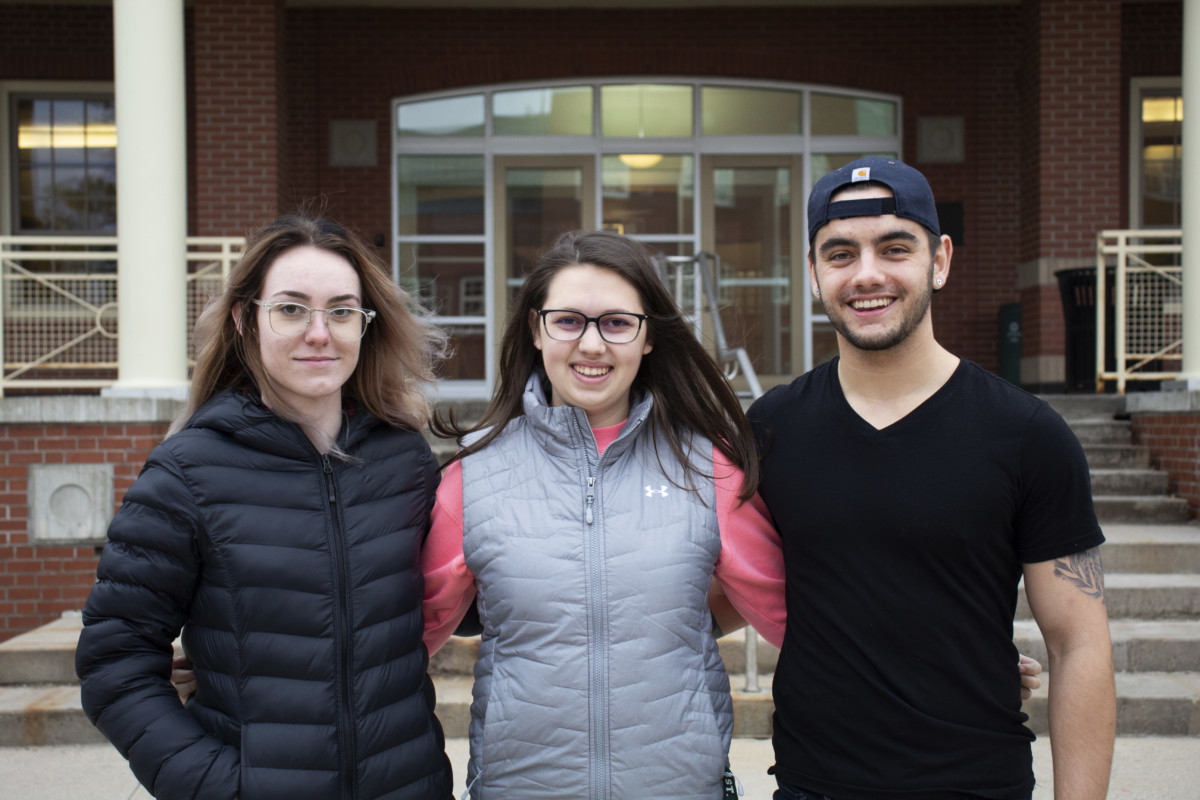When third-year St. Thomas University student Destiny Davidson received an email saying she was accepted into the RCMP National Youth Advisory Committee, she felt proud of herself and excited.
“It seemed like such a huge honour and accomplishment,” she said.
Davidson said having a younger perspective is crucial in federal lawmaking.
“When a group of adults are trying to make decisions and legislation surrounding youth, it becomes an issue when there’s no young input,” Davidson said.
“No one can speak or inform us well on youth issues, as the youth themselves can.”
Aside from her, STU students Simon Wassef and Jaylene DeAdder were chosen for the committee. All three said they are eager to bring new and younger perspectives to national decisions. They all study criminology at STU.
The committee brings together youth from across the country to better support systems for young people.
The committee, formed of 47 young adults from across Canada, meet twice a month through a private Facebook group where members will participate in live-streamed conference calls with RCMP officers. After discussion, members are given questions with two weeks to answer them.
Wassef said the application process involved answering some skill-testing questions, submitting a resume, two reference letters and a criminal record check.
“It was pretty thorough because you had to answer a lot of different questions about different issues and address what you could bring to the table,” said Wassef.
The committee is already making their voices.
“They gave us a brochure on cannabis use,” said Wassef. “They wanted our input on how it could be improved and if it would interact well with youth and their communities.”
Wassef said the committee suggested to make an effort to make the language inclusive for people using or abusing cannabis in the brochure.
“[We wanted] to assure that the language conveyed used terminology that could assist and educate rather than alienate,” he said.
Wassef applied after being inspired by his classes, along with an internship at the John Howard Society in Fredericton, where he teaches anger management classes to probation clients and helps create reports and proposals for their programs.
“I have an interest in restorative justice and I want to shed light on the possibilities that it can bring,” said Wassef.
Restorative justice gives offenders an opportunity to take responsibility for their actions and give a voice to the victims and community members. It focuses on repairing the harm caused by a criminal act instead of going through the traditional court system.
According to the Department of Justice, research shows that victims are more satisfied in cases that are resolved using restorative justice compared to those that do not go through restorative justice.
“I knew it was something I was interested in because I saw how effective it was and how many individuals we can keep out of jails and prisons,” said Wassef.
Davidson said successful applicants were contacted toward the end of the month and officially began on Oct. 7.
Luckily for the trio, balancing their involvement on the committee with schoolwork and other extracurricular activities is going well. Aside from being part of the committee and schoolwork, DeAdder is a residence advisor and part of Global Brigades. Davidson is a member of the STU Pre-law society.
DeAdder said youth voices are sometimes never heard which makes this committee is crucial.
“This allows us to empower and to give them a voice and help the RCMP know that they’re there and they matter.”

